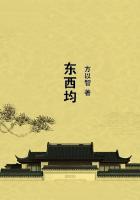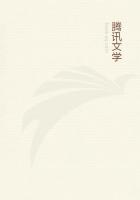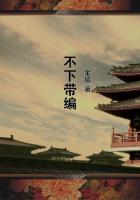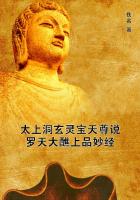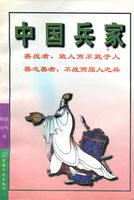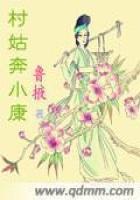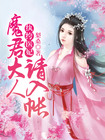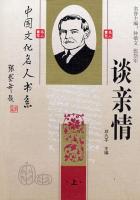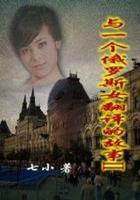The next day it was found impossible to move. The majority of the women had husbands with the army. They had left their wives, to secure everlasting freedom for their children; but, even if Houston was victorious, they might be wounded and need their help. To be near them in any case was the one thing about which they were positive.
"We will not move another inch," said a brave little Massachusetts woman, who had been the natural leader of this domestic Exodus; "we will rest ourselves a little here, and if the Mexicans want some extraordinary fighting they can have it; especially, if they come meddling with us or our children.
My husband told me just to get out of reach of shot and shell and wait there till we heard of the victory, and I am for doing THAT, and no other thing."
Nearly two hundred women, bent upon their own way, are not to be taken any other way; and the few old men who had been sent to guide the party, and shoot what game was necessary for their support, surrendered at once to this feminine mutiny.
Besides, the condition of the boys and girls between seven and fourteen was really a deplorable one. They were too old to be cared for as infants, and they had been obliged, with the strength of children, to accomplish the labor of men and women. Many were crippled in their feet, others were continually on the point of swooning.
It was now the 20th of April. The Senora and her daughters had been six weeks with the American army, exposed to all the privations which such a life entailed. But the most obvious of these privations were, perhaps, those which were most easily borne. Women endure great calamities better than the little annoyances affecting those wants which are part and parcel of their sex or their caste. It was not the necessaries so much as the luxuries of life which the Senora missed--the changes of raiment--the privacy--the quiet--the regularity of events.
During the whole of the 20th, there was almost a Sabbath stillness. It was a warm, balmy day. The wearied children were under the wagons and under the trees, sleeping the dead sleep of extreme exhaustion. The mothers, wherever it was possible, slept also. The guides were a little apart, listening and smoking. If they spoke, it was only in monosyllables. Rest was so much more needed than food that little or no attempt was made to cook until near sundown.
At dawn next morning--nay, a little before dawn--when all was chill, and gray, and misty, and there was not a sound but the wailing of a sick child, the Senora touched her daughters.
Her voice was strange to them; her face solemnly happy.
"Antonio! Isabel! I HAVE SEEN JUAN! I HAVE SEEN JUAN! My eyes were shut, but I have seen him. He was a beautiful shadow, with a great, shadowy host around him. He bent on me such eyes! Holy Mother! their love was unfathomable, and I heard his voice. It was far off, yet near. `Madre!' he said, `TOMORROW YOU SHALL HEAR FROM US.' Now I am happy. There are words in my heart, but I cannot explain them to you. I know what they mean. I will weep no more. They put my Juan's body in the grave, but they have not buried HIM."
All day she was silent and full of thought, but her face was smiling and hopeful, and she had the air of one waiting for some assured happiness. About three o'clock in the afternoon she stood up quickly and cried, "Hark! the battle has begun!" Every one listened intently, and after a short pause the oldest of the guides nodded. "I'd give the rest of my life to be young again," he said, "just for three hours to be young, and behind Houston!"
"TO-MORROW WE SHALL HEAR."
The words fell from the Senora's lips with a singular significance. Her face and voice were the face and voice of some glad diviner, triumphantly carrying her own augury.
Under a little grove of trees she walked until sunset, passing the beads of her rosary through her fingers, and mechanically whispering the prayers appointed. The act undoubtedly quieted her, but Antonia knew that she lay awake all night, praying for the living or the dead.
About ten o'clock of the morning of the 22d, a horseman was seen coming toward the camp at full speed. Women and children stood breathlessly waiting his approach. No one could speak.
If a child moved, the movement was angrily reproved. The tension was too great to admit of a touch through any sense. Some, unable to bear the extended strain, sank upon the ground and covered their faces with their hands. But the half-grown children, wan with privations and fever, ragged and barefoot, watched steadily the horse and its rider, their round, gleaming eyes full of wonder and fear.
"It is Thomas," said the Senora.
As he came near, and the beat of the horse's hoofs could be heard, a cry almost inarticulate, not to be described, shrill and agonizing in its intensity, broke simultaneously from the anxious women. It was one cry from many hearts, all at the last point of endurance. Thomas Worth understood it. He flung his hat up, and answered with a joyful "Hurrah!"
When he reached the camp, every face was wet with tears, and a crowd of faces was instantly round him. All the agonies of war were on them. He raised himself in his stirrups and shouted out:
"You may all go back to your homes! Santa Anna is completely overthrown! The Mexican army is destroyed! There will be no more fighting, no more fears. The independence of Texas is won! No matter where you come from, YOU ARE ALL TEXANS NOW! Victory! Freedom! Peace! My dear friends, go back to your homes. Your husbands will join you at the San Jacinto."
Then he dismounted and sought his mother and sisters. With joyful amazement he recognized the change in the Senora. "You look like yourself, dear mother," he said. "Father sends you this kiss. He would have brought it, but there are a few wounded men to look after; and also I can ride quicker.
Antonia, cheer up my dear!--and Isabel, little darling, you will not need to cry any more for your ribbons, and mantillas, and pretty dresses."

